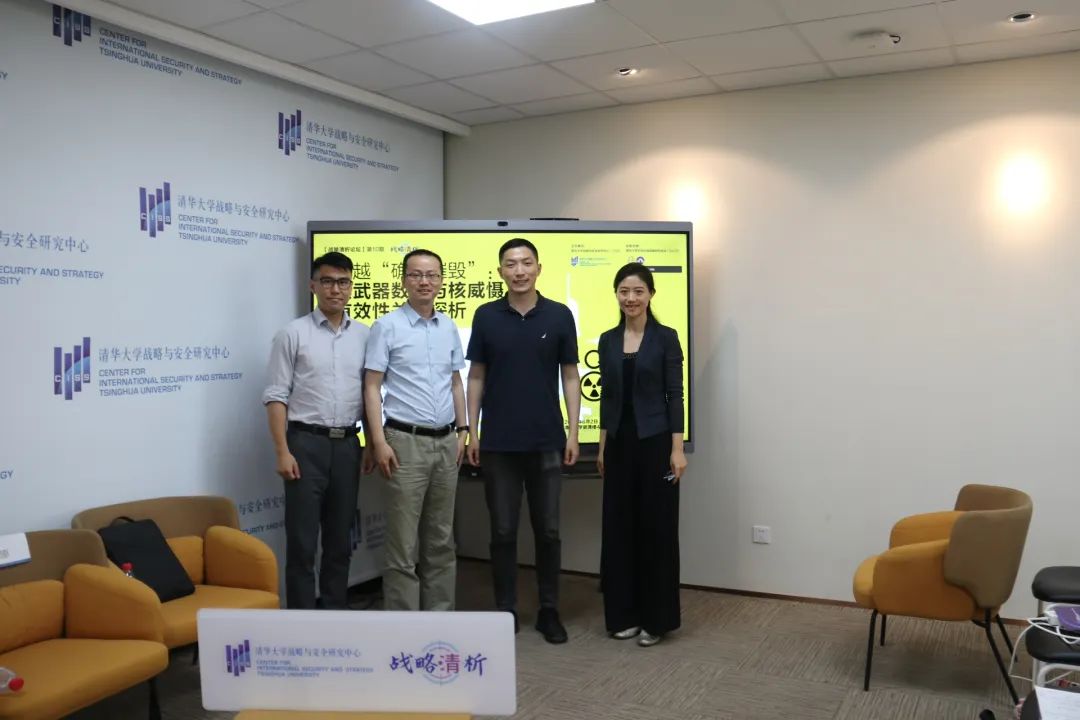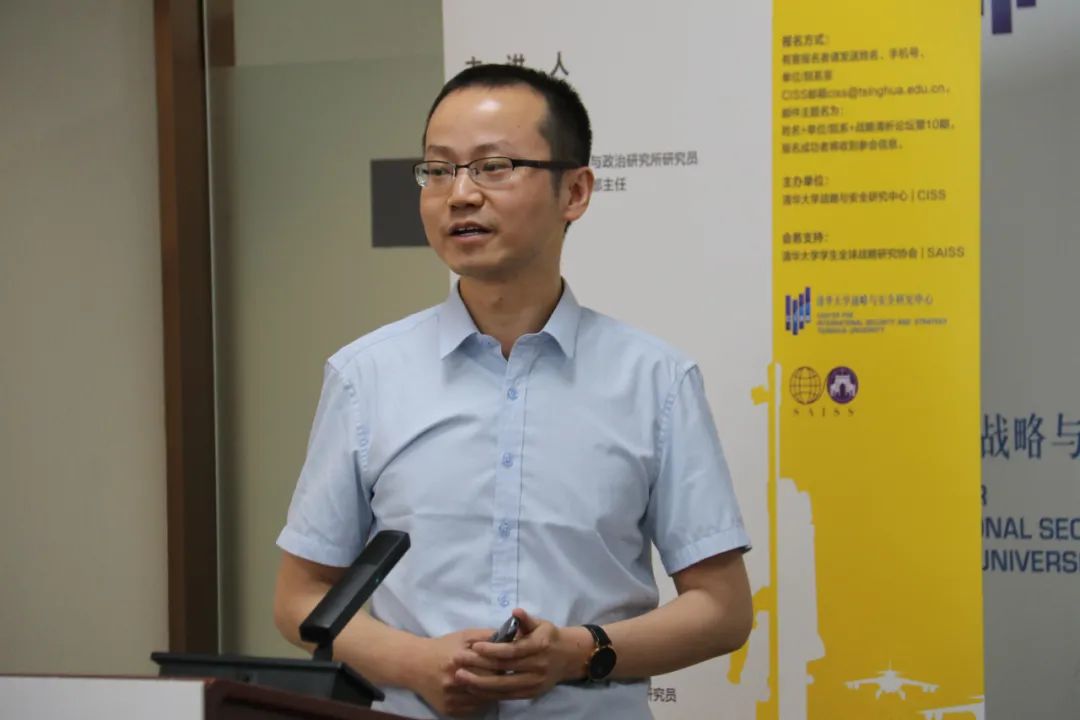On the afternoon of June 2, the 10th StratFocus Forum of the Center for International Security and Strategy (CISS) of Tsinghua University was successfully held, with about 200 participants joining the forum online and offline. Featuring Yang Yuan, Senior Fellow of the Institute of World Economics and Politics of the Chinese Academy of Social Sciences and Editorial Director of World Economics and Politics, as the key speaker, the forum themed “Beyond ‘Assured Destruction’: A Discussion of the Relationship between the Number of Nuclear Weapons and the Effectiveness of Nuclear Deterrence.” Also among the panelists were Qi Haotian, Assistant Professor of the School of International Studies at Peking University, and Jiang Tianjiao, Associate Professor of the Fudan Development Institute of Fudan University. They discussed the relationship between the number of nuclear weapons and the effectiveness of nuclear deterrence. The forum was moderated by CISS Fellow Shi Yan.

Qi Haotian, Yang Yuan, Jiang Tianjiao, Shi Yan (from left to right)
Starting from the existing theories, Yang Yuan first questioned the “assured destruction” paradigm widely acknowledged in the academic circle. He argued that nuclear deterrence consisted of two components: capability credibility and commitment credibility. The “assured destruction” paradigm overemphasizes the capability credibility but ignores its inverse effect on commitment credibility. In a “mutually assured destruction” state, the deterrent’s determination to execute a nuclear strike will be doubted because the nuclear power of its side will also be destroyed, thus weakening the commitment credibility of the deterrent. Drawing on the plot of the famous science fiction The Three-Body Problem, Yang Yuan explained vividly to the students the significance of the commitment credibility and the decisive importance of “determination” to the success of deterrence in a mutually assured destruction state. He further pointed out that, on the contrary, keeping the nuclear forces lower than the threshold of the assured destruction would highlight one’s resolve and enhance the commitment credibility. In this way, Yang Yuan argued both theoretically and empirically that assured destruction was neither a sufficient nor a necessary condition for deterrence to be effective. With the precondition that the number of nuclear weapons kept is below the assured destruction threshold, the key to effective nuclear deterrence is for the nuclear owners to significantly and openly lower the bar for their use of nuclear weapons and to transform the military contest into a contest of resolve as soon as possible.

Yang Yuan
Senior Fellow of the Institute of World Economics and Politics of the Chinese Academy of Social Sciences and Editorial Director of World Economics and Politics
In the following, Qi Haotian and Jiang Tianjiao shared their views as panelists. Qi Haotian first summarized Yang Yuan’s research and mainly discussed the impact of emerging technologies on the effectiveness of nuclear deterrence. He argued that the development of new technologies such as artificial intelligence had the potential to cause strategic instability. He advocated attention paid to the relationship between quantitative and qualitative upgrades of strategic force systems in the process of defense modernization and more deep research on the similarities and differences between deterrence by punishment and deterrence by denial under new conditions.
According to Jiang Tianjiao, Yang Yuan’s research further refined the theoretical structure in the context of Chinese scholars and contributed to China’s autonomous knowledge system. Jiang then introduced the different thinking and cultures behind the different choices of nuclear strategies by China and the United States, and pointed out that the current U.S. politics were severely polarized, and its policymakers, generally not satisfied with “assured destruction”, pursued “strategic advantage” instead, as they followed the so-called “actual combat thinking,” which endangered the strategic stability of China and the United States.
In the end, the key speaker and panelists answered questions from the online and offline audiences, and the forum was successfully concluded.
The StratFocus Forum is launched by the Center for International Security and Strategy of Tsinghua University, with the objective of fostering more talents and building an academic community on security and strategy. The forum, which is held monthly, aims to serve as an academic exchange platform for students and young scholars in the fields of strategy, security, international relations, and diplomacy, where they will be invited to discuss pressing global issues and cutting-edge research in their disciplines, and promote communication and interaction between young scholars and students. We very much look forward to seeing you at the forum.
